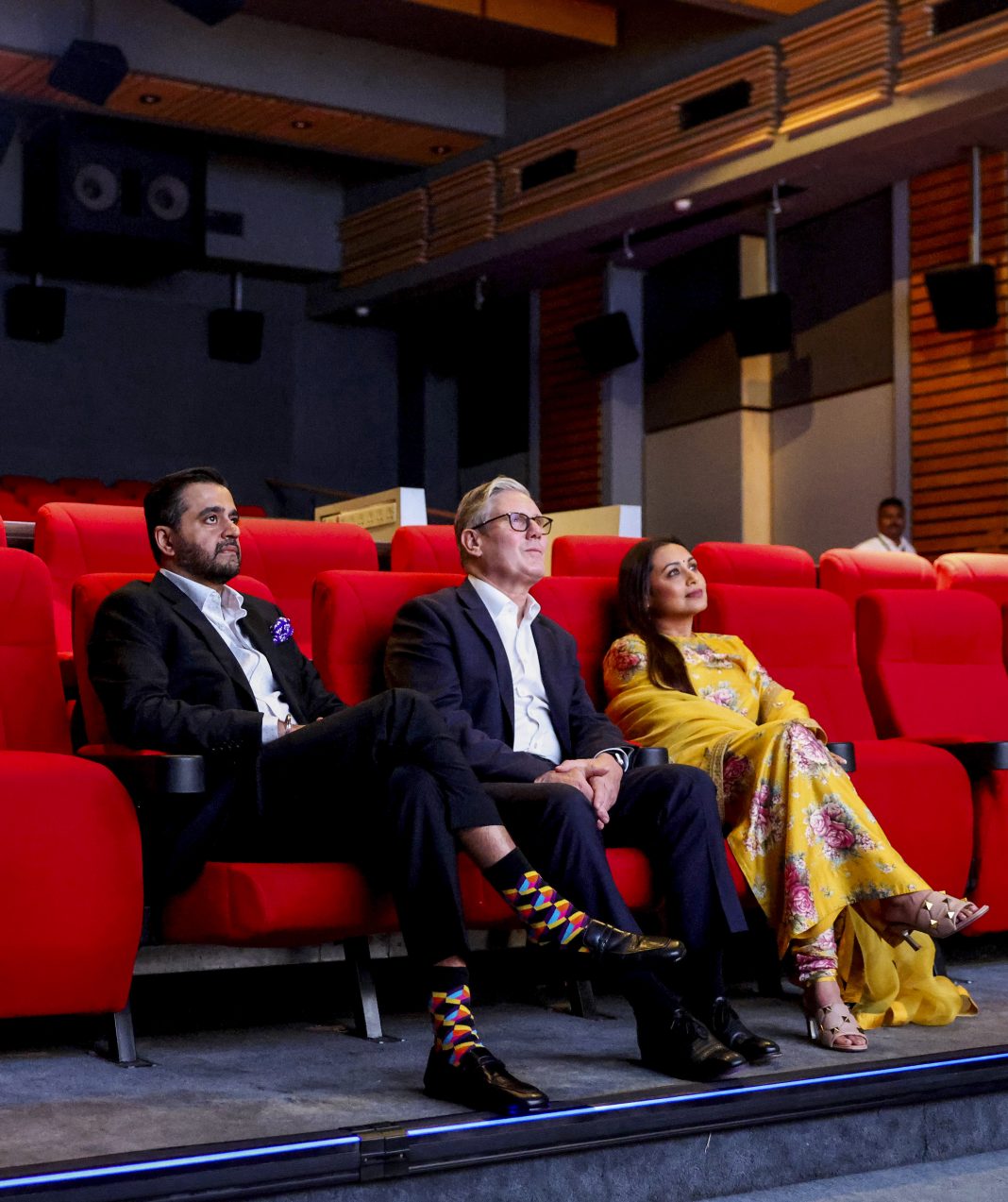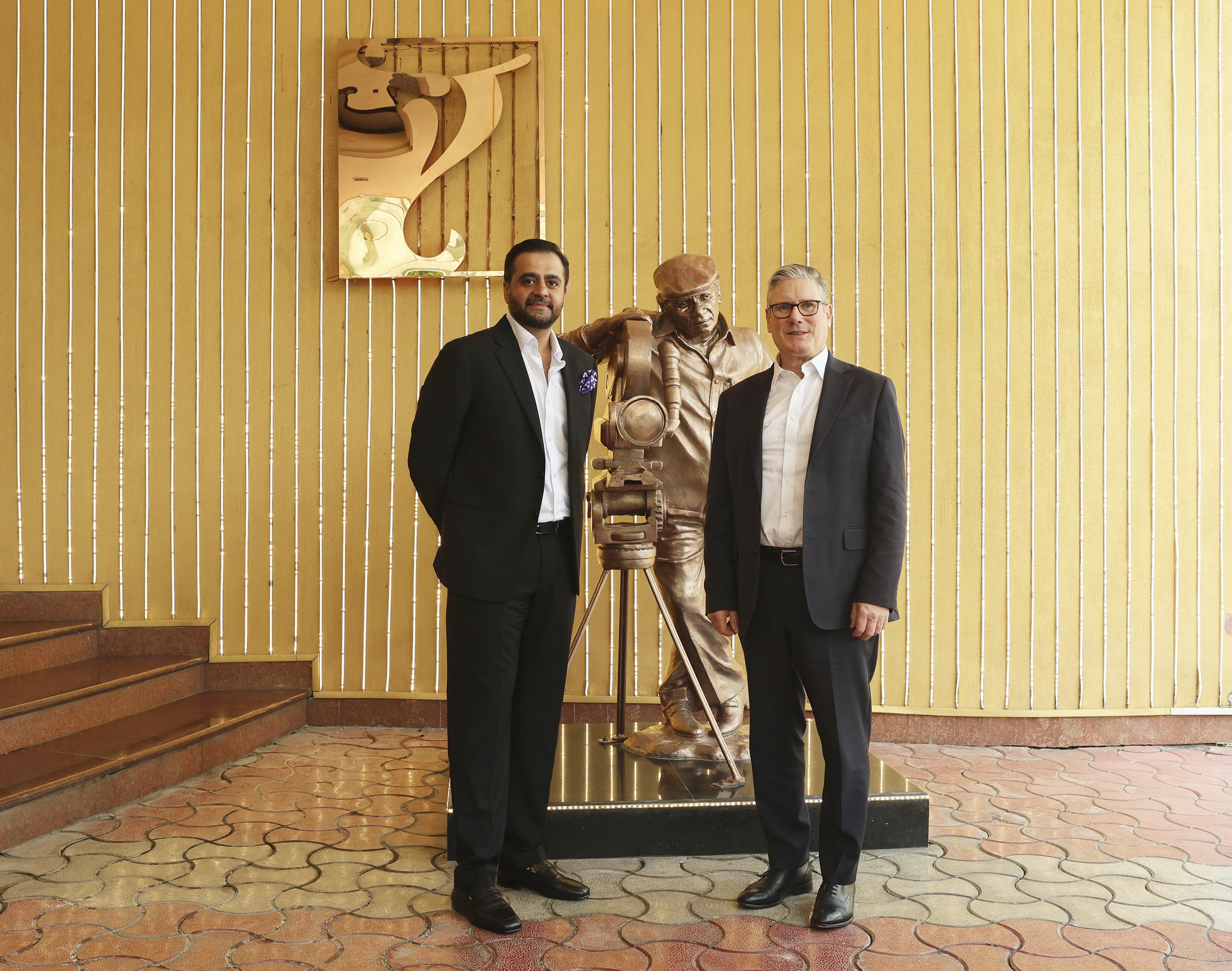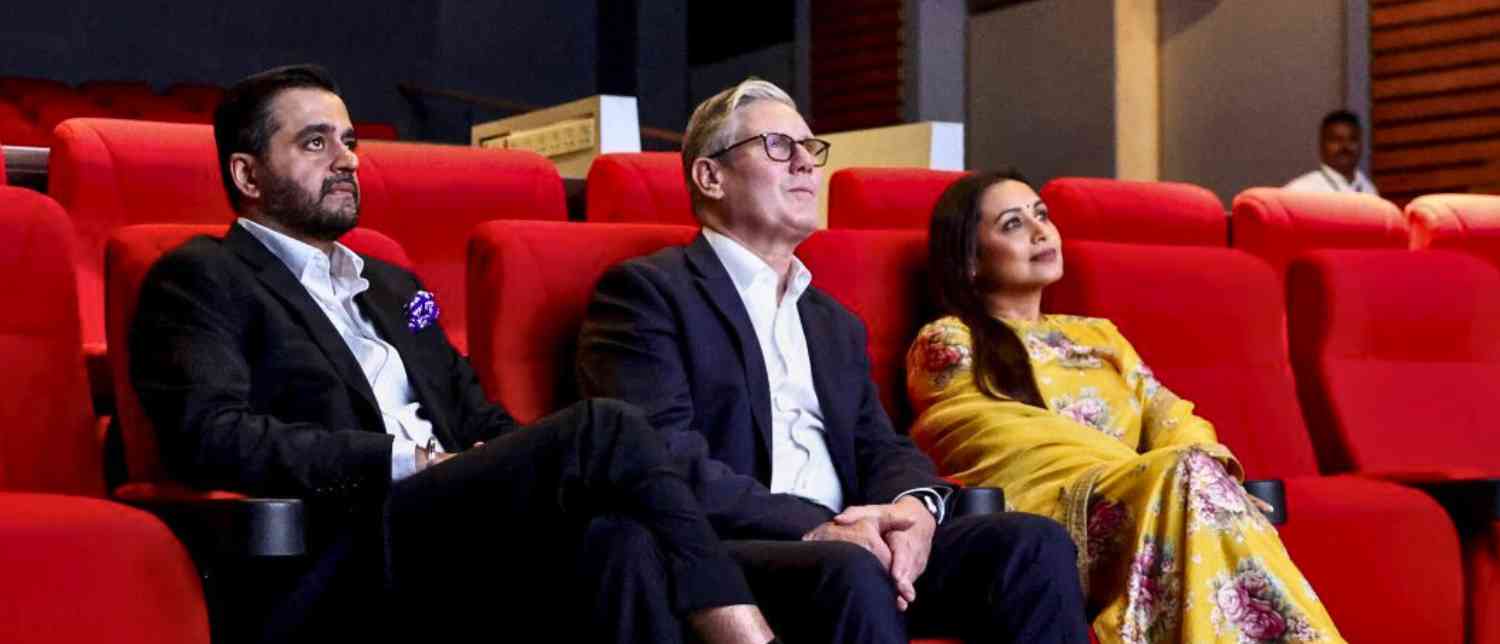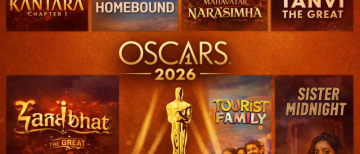Prime Minister Keir Starmer has praised the revival of Bollywood’s presence in the United Kingdom, urging for deeper collaboration between British and Indian film industries during his visit to Yash Raj Films’ (YRF) London studio this week. The visit comes as part of the UK government’s wider plan to strengthen cultural and creative partnerships with India—one of the world’s largest film-producing nations.
Standing amid colourful film sets and discussing upcoming Indo-British productions, Starmer described the relationship between Bollywood and Britain as “a bridge of creativity and friendship”. He emphasised how the return of major Indian productions to British soil could boost the economy, create jobs, and enhance the UK’s global image as a hub for world cinema.

Bollywood has had a long love affair with Britain. Iconic films such as Kabhi Khushi Kabhie Gham, Dilwale Dulhania Le Jayenge, and Namaste London featured the streets of London as romantic backdrops that captivated millions worldwide. However, over the past decade, the pace of Bollywood filming in the UK slowed as more production houses turned to other destinations like Dubai, Hungary, and Turkey for shooting incentives.
Now, with Yash Raj Films returning to the UK for new projects, it signals what many in the industry see as a “Bollywood comeback” for Britain.
Starmer’s visit wasn’t only about film—it was also a powerful message about soft diplomacy. He highlighted that culture and cinema can help strengthen ties beyond trade and politics. “We often talk about our historic bonds with India through commerce or governance,” he said, “but our cultural connection is just as vital. Bollywood has a way of connecting people that politics sometimes cannot.”
During his discussions with YRF executives, Starmer explored how both countries could benefit from co-productions, talent exchanges, and technical collaborations such as special effects, editing, and sound design. Britain already boasts some of the world’s best film schools and post-production facilities, making it a natural partner for Indian studios aiming for international reach.
Britain’s creative sector contributes over £100 billion annually to the economy, with the film industry playing a major role. By attracting Bollywood back, the government hopes to generate millions in tourism and employment opportunities. When a Bollywood movie is filmed in locations like London, Manchester, or Edinburgh, local businesses—from hotels to transport and catering—benefit directly.

The UK Film Commission is expected to announce new measures in collaboration with Indian studios to make filming smoother, such as simplified visa processes for Indian crews and incentives for co-productions. According to an official from the Department for Culture, Media and Sport, these discussions are “already in advanced stages”.
From a broader perspective, Bollywood is not just entertainment—it’s one of India’s strongest cultural exports. Its global influence reaches far beyond South Asian audiences, with Indian music, fashion, and storytelling now influencing mainstream Western trends. Britain, with its large Indian diaspora, serves as a natural home for this cinematic relationship.
For Yash Raj Films, the decision to expand operations and shoot more projects in the UK is both sentimental and strategic. Late Yash Chopra, the legendary founder of YRF, had a deep personal affection for London, often calling it his “second creative home”. His son and current chairman, Aditya Chopra, continues to uphold that tradition, recognising the UK’s potential as a worldwide stage for Indian stories.
Despite the enthusiasm, there are challenges ahead. Rising production costs, post-Brexit visa regulations, and stiff global competition for film incentives make it important for the UK to sustain its appeal. Some Indian filmmakers have expressed concerns about logistical hurdles and taxes, which sometimes make shooting in countries like Spain or the UAE more attractive.
Nonetheless, Starmer’s visit signals political will to address these issues. His comments suggest that the UK is ready to roll out the red carpet for Bollywood once again—both literally and figuratively.

Analysts believe that this renewed collaboration can serve a strategic purpose for both nations. For Britain, deepening cultural ties with India aligns with its post-Brexit strategy of engaging non-European partners through trade and cultural diplomacy. For India, expanding its film influence in the UK strengthens its position as a global media powerhouse.
Experts say that when a Bollywood movie is filmed in Britain, it also acts as a marketing campaign for tourism. Millions of moviegoers, especially in India and the Middle East, are inspired to visit UK landmarks they see on screen. This trend has historically boosted tourism numbers after the release of major films.
As cameras prepare to roll again in London under the YRF banner, the optimism is mutual on both sides. The UK’s creative hubs, vibrant multicultural communities, and skilled workforce offer fertile ground for cross-border storytelling. Meanwhile, Bollywood brings its global fan base, colour, and emotional depth—qualities that can breathe new life into British cinema spaces.
In essence, Starmer’s outreach to Bollywood is not only an economic strategy but also a cultural statement. It signals that Britain values creativity as diplomacy, and sees the film reel as powerful as a trade deal in building lasting connections.
With inputs from agencies
Image Source: Multiple agencies
© Copyright 2025. All Rights Reserved. Powered by Vygr Media.























